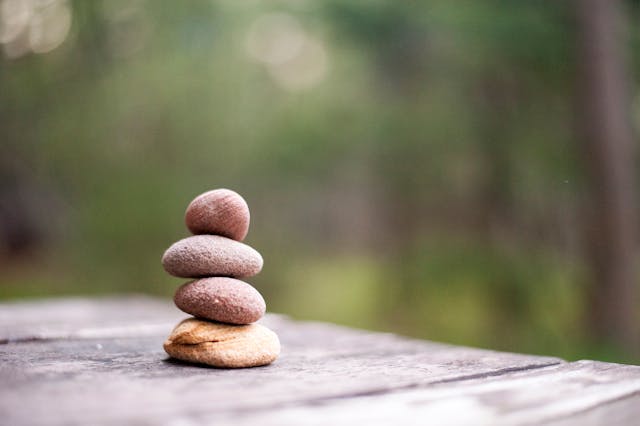Why Self-Reflection is the Secret to Personal Growth
In the fast-paced modern world, the concept of self-reflection often takes a backseat to immediate tasks, goals, and distractions. Yet, self-reflection is one of the most powerful tools for personal growth. By pausing to examine thoughts, actions, and emotions, individuals can gain deeper insights into their motivations, strengths, and areas for improvement. This article delves into why self-reflection is the secret to personal growth, exploring its benefits, techniques, and how to integrate it into daily life.
Understanding Self-Reflection
Self-reflection is the process of introspectively examining one’s thoughts, feelings, and actions. It involves stepping back from daily routines to evaluate past experiences, decisions, and their consequences. This practice fosters self-awareness, enabling individuals to better understand themselves and their interactions with the world.
Unlike passive rumination, which can lead to overthinking, self-reflection is purposeful and constructive. It focuses on learning, understanding, and planning for improvement, making it a cornerstone of personal growth.
The Importance of Self-Reflection in Personal Growth
- Increased Self-Awareness
- Self-reflection helps individuals recognize their values, beliefs, and motivations. By understanding what drives them, they can align their actions with their goals and purpose.
- For instance, reflecting on why a project felt fulfilling might reveal a passion for creativity or teamwork, guiding future career decisions.
- Enhanced Emotional Intelligence
- By examining emotional reactions, individuals can identify triggers, regulate responses, and build healthier relationships. Emotional intelligence, a key component of personal growth, thrives on self-reflection.
- Better Decision-Making
- Reflection enables people to learn from past mistakes and successes, improving their decision-making abilities. It helps identify patterns, assess risks, and make informed choices.
- Clarity of Goals
- Regular self-reflection clarifies personal and professional aspirations. It ensures that goals are meaningful and aligned with one’s values, preventing the pursuit of superficial or irrelevant objectives.
- Increased Resilience
- Reflecting on challenges builds resilience by helping individuals understand how they’ve overcome difficulties in the past. This insight fosters confidence in handling future obstacles.
The Science Behind Self-Reflection
Research supports the transformative power of self-reflection. Studies show that self-reflective practices activate the brain’s medial prefrontal cortex, which is responsible for self-awareness and emotional regulation. Engaging in reflection promotes neural connections that enhance self-understanding and empathy.
Additionally, reflection improves memory consolidation, helping individuals retain lessons from experiences. Journaling, a common form of self-reflection, has been linked to reduced stress, improved problem-solving, and increased overall well-being.
Techniques for Effective Self-Reflection
- Journaling
- Writing thoughts and feelings in a journal provides a tangible way to explore experiences. Journaling can reveal patterns, track progress, and clarify emotions.
- Tip: Set aside 10–15 minutes daily to write freely about your day or focus on specific prompts like, “What did I learn today?” or “What could I have done differently?”
- Mindfulness and Meditation
- Mindfulness encourages individuals to observe their thoughts without judgment. Meditation, especially practices like focused breathing, facilitates deep reflection by calming the mind.
- Tip: Dedicate 5–10 minutes to sit quietly, focus on your breath, and let thoughts surface naturally.
- Asking Reflective Questions
- Thoughtful questions prompt deeper analysis. Examples include:
- What are my strengths and weaknesses?
- What motivates me in difficult situations?
- How do my actions align with my long-term goals?
- Tip: Choose one question daily to ponder or journal about.
- Thoughtful questions prompt deeper analysis. Examples include:
- Feedback from Others
- Self-reflection is enriched by seeking feedback from trusted friends, family, or colleagues. Their perspectives can highlight blind spots and provide valuable insights.
- Tip: Regularly ask for constructive feedback and reflect on how to apply it.
- End-of-Day Reviews
- At the end of each day, take a few moments to review what went well, what didn’t, and what could be improved.
- Tip: Use a simple framework like “Highs, Lows, Lessons” to structure your review.
- Vision Boards or Goal Mapping
- Visualizing goals and reflecting on progress helps maintain focus and motivation. Reviewing vision boards regularly ensures alignment with changing aspirations.
- Tip: Update your vision board monthly to reflect evolving goals and achievements.
Overcoming Barriers to Self-Reflection
Despite its benefits, self-reflection can be challenging. Common barriers include:
- Lack of Time
- Busy schedules often leave little room for introspection. Overcome this by scheduling short, dedicated periods for reflection, such as 5–10 minutes before bed.
- Fear of Confrontation
- Self-reflection may uncover uncomfortable truths. Approach this process with compassion and focus on growth rather than judgment.
- Overthinking
- Reflection should not devolve into overthinking or self-criticism. Set clear intentions and time limits to avoid spiraling into unproductive thought patterns.
- Difficulty in Starting
- For beginners, starting the practice of self-reflection can feel daunting. Begin with simple exercises, like journaling a single thought or reflecting on one positive experience.
Integrating Self-Reflection into Daily Life
- Morning Reflections
- Begin each day with a moment of reflection on your intentions and priorities. This sets a positive tone and aligns actions with goals.
- Reflective Breaks
- Take short breaks during the day to pause and assess your progress. Use these moments to recalibrate if necessary.
- Weekly Reviews
- Dedicate time each week to review accomplishments, challenges, and lessons learned. This broader perspective provides insights that daily reflections might miss.
- Milestone Reflections
- Reflect on major events, achievements, or transitions in your life. Analyze what worked, what didn’t, and how you’ve grown.
- Celebrate Progress
- Acknowledge and celebrate your growth and achievements, no matter how small. Recognizing progress fosters motivation and self-confidence.
The Long-Term Impact of Self-Reflection
Over time, self-reflection becomes a habit that continuously fuels personal growth. Its cumulative benefits include:
- Stronger Relationships
- By understanding yourself better, you can communicate more effectively and empathize with others, strengthening personal and professional relationships.
- Improved Mental Health
- Reflection reduces stress, enhances self-compassion, and fosters a positive mindset, contributing to overall well-being.
- Lifelong Learning
- Self-reflection encourages a growth mindset, enabling you to learn from experiences and adapt to change.
- Purposeful Living
- Regular introspection ensures that your actions align with your values and aspirations, leading to a more fulfilling and purposeful life.
Inspiring Examples of Self-Reflection in Action
- Mahatma Gandhi
- Known for his daily practice of introspection, Gandhi used reflection to align his actions with his principles of non-violence and justice.
- Oprah Winfrey
- Oprah attributes much of her success to journaling and self-reflection. She emphasizes the importance of understanding one’s purpose and aligning actions with it.
- Ray Dalio
- The billionaire investor credits his success to systematic reflection. In his book Principles, he highlights how reflection on past decisions helped him refine his strategies and grow.
Conclusion
Self-reflection is not merely an exercise in looking inward—it is a transformative process that unlocks personal growth and fulfillment. By cultivating self-awareness, enhancing emotional intelligence, and fostering better decision-making, reflection becomes a tool for navigating life with purpose and clarity. Despite the challenges it may pose, the rewards of introspection far outweigh the effort required.
Integrating self-reflection into daily life enables individuals to uncover their true potential, learn from experiences, and create meaningful connections with themselves and the world around them. Whether through journaling, mindfulness, or end-of-day reviews, the practice of self-reflection is a secret weapon for anyone committed to continuous personal growth.



